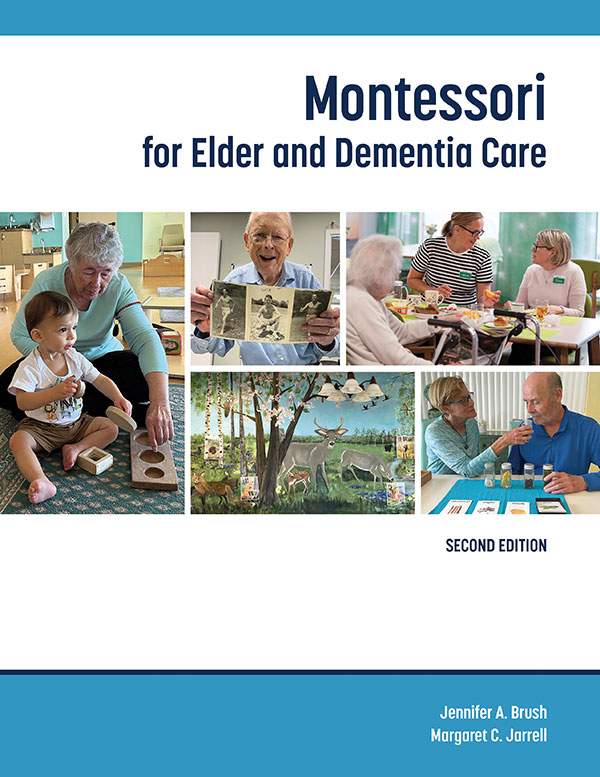Efficient Dementia Treatment Methods for a Better High Quality of Life
In the realm of mental deterioration treatment, the application of effective techniques is vital for boosting the quality of life for both people affected by the disease and their caretakers. Recognizing the distinct stages of mental deterioration enables for tailored interventions that deal with the progressing demands of patients-- from advertising cognitive interaction in the very early phases to ensuring dignity in late-stage care.
Understanding Dementia Stages

In the early phase, people may experience mild memory loss and trouble with familiar jobs. Treatment approaches should focus on preserving self-reliance and giving cognitive excitement. In the late stage, individuals may shed the capacity to call for and communicate assistance with day-to-day tasks.
Acknowledging these stages allows caretakers to adapt their approaches and give support that aligns with the person's current needs, inevitably facilitating much better administration of the problem and enhancing the general caregiving experience. Comprehending dementia phases is as a result a foundational element of reliable dementia care.
Interaction Techniques
Reliable interaction is a vital part of dementia treatment, especially as the illness progresses through its different phases. As cognitive capacities decrease, it ends up being necessary to adjust communication strategies to satisfy the needs of individuals with dementia. Using clear, easy language is vital; caregivers ought to stay clear of intricate sentences and lingo, deciding instead for simple, concise expressions.
Non-verbal communication plays a just as significant role. Faces, motions, and intonation can convey heat and understanding, often enhancing verbal messages. Keeping eye get in touch with and an open position promotes a feeling of connection and security, encouraging individuals with dementia to involve more fully in conversations.
It is likewise advantageous to be individual and enable sufficient time for reactions. People may call for extra time to process information and create their thoughts. Repeating or rewording concerns may be essential if understanding appears doing not have.
Last but not least, focusing on the person's rate of interests and personal background can facilitate extra significant communications. Participating in acquainted subjects can stimulate positive memories and emotions, better improving the interaction experience (memory care charlotte). By utilizing these methods, caregivers can considerably improve the high quality of communications, advertising self-respect and respect for people coping with dementia
Creating a Safe Atmosphere
Producing a secure setting for individuals with dementia is important to promoting their wellness and self-reliance. A well-designed space can dramatically decrease the dangers of mishaps and boost the top quality of life for those impacted by this condition.
Lighting plays an essential duty as well; using natural light wherever feasible and integrating night lights can help people browse their surroundings safely. Additionally, identifying rooms and important items can help memory and positioning, why not look here minimizing confusion and anxiety.
It is additionally important to develop an acquainted environment by individualizing the area with pictures or treasured items, which can stimulate favorable memories and a sense of belonging.
Including furniture that is both functional and comfortable adds to a helpful environment, allowing individuals to participate in day-to-day activities easily. Ultimately, a secure setting not just safeguards versus physical threats but likewise promotes a feeling of safety, which is crucial for the emotional wellness of those dealing with mental deterioration.
Engaging Activities and Regimens
Engaging activities and structured routines are important parts in the treatment of people with dementia, as they advertise cognitive feature, psychological stability, and social interaction. These activities must be customized to the person's interests, capabilities, and stage of cognitive decline. memory care charlotte. Straightforward, recurring jobs such as gardening, arts and crafts, or cooking can provide significant involvement, allowing people to use their abilities while promoting a sense of accomplishment
Establishing an everyday regimen helps create a foreseeable atmosphere, which can reduce anxiety and complication. This framework can include marked times for dishes, activities, and remainder, guaranteeing a well balanced technique to every day life. Incorporating social interactions into these routines, such as team activities or seeing family, further enhances emotional health and fights feelings of isolation.
In addition, physical tasks, such as strolling or dancing, not just promote physical health and wellness however additionally promote psychological engagement. Motivating participation in neighborhood occasions or assistance groups can give additional opportunities for socializing. On the whole, the combination of appealing tasks and structured routines is necessary in boosting the lifestyle for individuals with mental deterioration, cultivating freedom and self-respect while resolving their unique requirements.
Sustaining Caretaker Health
Looking after people with mental deterioration can be a demanding and psychologically tiring experience, making it imperative to prioritize the health of caregivers. Caretakers usually deal with high degrees of tension, stress and anxiety, and physical exhaustion, which can cause fatigue if not dealt with suitably. To support their well-being, it is vital to apply a complex technique.
First, supplying caregivers with accessibility to education and sources can encourage them with strategies to take care of everyday difficulties. Support system, both in-person and online, supply a system for sharing experiences, fostering a sense of neighborhood, and reducing sensations of isolation. Additionally, break care services allow caretakers to take needed breaks, permitting them time to recharge and attend to their own health and wellness demands.
Furthermore, motivating caregivers to take part in self-care methods-- such as normal exercise, healthy eating, and mindfulness-- can significantly boost their strength. Promoting open communication concerning their sensations and challenges with relative or professionals also assists alleviate psychological burdens.
Final Thought
In verdict, effective mental deterioration treatment strategies include helpful site a thorough understanding of the condition's stages, the application of clear communication techniques, the facility of a secure setting, and the promo of structured regimens and check over here interesting tasks. In addition, prioritizing the well-being of caretakers is necessary to maintaining quality care. By incorporating these strategies, the total lifestyle for individuals with mental deterioration can be substantially improved, cultivating a helpful atmosphere that advertises self-respect and psychological well-being.
In the world of dementia care, the application of reliable strategies is critical for boosting the quality of life for both people influenced by the condition and their caretakers. By employing these techniques, caretakers can significantly boost the high quality of interactions, advertising self-respect and regard for people living with mental deterioration.

Caring for people with mental deterioration can be a requiring and psychologically tiring experience, making it important to focus on the well-being of caregivers.